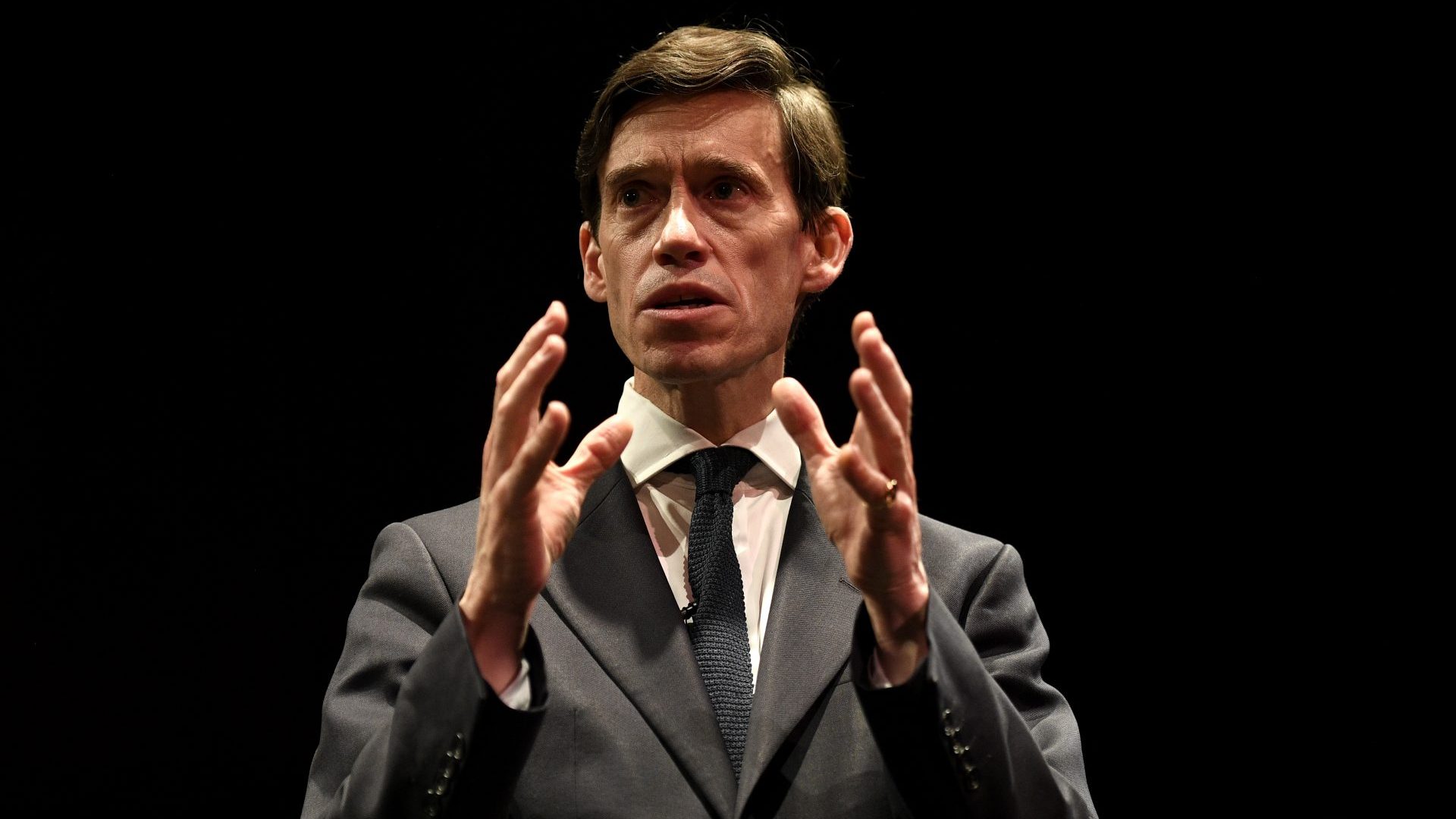Rory Stewart has been many things: a soldier, a diplomat, an author, an MP, a minister, a charity boss. He has tried to become the mayor of London, and even the prime minister. Now he is a visiting professor at Yale and one of Britain’s most popular podcasters.
Stewart has excelled at many of these jobs, as well as putting some people’s backs up. But he has always moved on. The quest to Get Things Done, to hike up the next mountain, drives him forward. It was no surprise he chose to represent Penrith and the Borders, nor that he is a passionate defender of the Union.
For Stewart, borders exist to be crossed. Half-English, half-Scottish, the idea of being prevented from strolling from England to Scotland clearly appals him. Rules, limits, guidance: he can see why they are there, but to him they function as an obstacle to the best of human endeavour.
Middleland, his latest book, is largely not new. It brings together some of the columns he wrote for the Cumberland and Westmorland Herald while he was an MP. He has edited them and added some reflections. But to dismiss it as a potboiler would be wrong. Middleland is the latest instalment in the ongoing Rory Stewart project, which asks: what is my country, and what can I do for it?
Not a lot, right now. Stewart’s brand of Conservatism peaked in 2010 with the election of David Cameron and the shortlived vision of the Big Society. His principled rejection of Boris Johnson won him admirers on both the centre left and centre right, and he has resisted the polarisation that is destroying British politics.
Stewart is a man out of his time. The contrast with Johnson’s lazy approach to journalism is telling. He claims he spent six or seven hours writing each column for the Herald, an extraordinary amount of time for an MP to devote to an article in a local newspaper. During council elections, he uses the column to plead with his constituents to get out and vote. They ignore him. He lacks the ruthlessness of the practised journalist.
His writing is limpid, reflective, often beautiful. Only occasionally does it falter into bathos (Stewart takes porridge on a hike but forgets his spoon). The Herald sells around 6,500 copies a week.
What Stewart fails to confront is the policy that came to define the early 2010s. This was understandable at the time. Why would a Tory MP complain about his own party’s direction? It was not until after Brexit that the vast majority of journalists began to grasp the extent of the damage austerity had done to Britain’s social fabric. But it still goes unacknowledged by Stewart.
Suggested Reading


Reading is the new resistance
And indeed, Penrith and the Borders might hitherto have escaped the worst of it. Only later this month will Scottish Borders Council decide whether to implement its consultants’ recommendation to close pools and libraries, sacking the 50 people who work for a charity that runs them.
For all his appeal to the centre left, Stewart is fundamentally a Conservative. For him, nature, business and community goodwill are the glue that holds his constituency together. The state tends to get in the way.
“Cumbria remains, by some astonishing combination of soil, luck and cultural stubbornness, just enough of a living human landscape,” he writes. In truth, all over the county people depend – willingly or not – on the help that faraway “Whitehall” and local government gives them.
That extends to local newspapers. It emerged earlier this year that Westmorland and Furness Council had paid the Herald’s owner £46,555 in the previous 10 months. Stewart is disappointed when Cameron pays a cursory visit to Penrith, and the PM looks irritated when Stewart suggests it is more rugged, more distinctive, than Cameron’s Witney constituency. Yet this is the price of a United Kingdom.
He includes one column that he never filed. Much of it is about the Roman senator who governed the Carvetii civitas, which approximates to Penrith and the Borders. Stewart believes he was a local man who was forced to submit to the demands of Rome.
“Did Flavius reconcile himself to the daily disappointments, the small humiliations, the public contempt?” The answer goes unspoken: probably not, and nor have I. No wonder he never sent it to the editor.
Over and over, Stewart has returned to the topic of borders, worrying away at it, decrying nationalism and fascinated by the places that adjoin and straddle the edges of states. He portrays himself as an outlier, not part of the establishment.
But can you get to the top when you insist on hanging around the edges? Stewart’s life would suggest that the answer is no.
Middleland: Dispatches from the Borders is published by Jonathan Cape.
Ros Taylor hosts the More Jam Tomorrow and Oh God, What Now? podcasts




